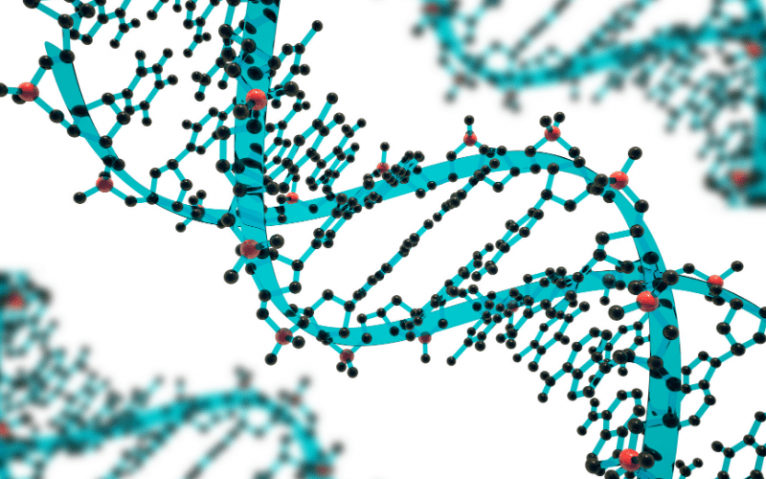Our genetic structure determines nearly all of our human traits. Beyond our physical characteristics, our genes can also decide on our behavioral characteristics like aggression. So, based on this idea, is alcoholism genetic? Can our genes be to blame for our addictions? If that’s the case, is there anything we could do at the “gene level” to prevent diseases like alcoholism? Let’s break down the science and learn more about this unique approach to alcohol addiction.
Understanding Alcohol Addiction
Addiction is a chronic and progressive disease of the brain that affects the reward and motivation centers. Alcoholism affects at least 18 million adults in the United States, which equals 1 in 12 people. Plus, over 100,000 people die every year due to alcoholism, including deaths due to cirrhosis.
While people think alcoholism is a choice, it’s a chronic disease, of the likings of diabetes, for example. Alcohol rewires someone’s brain chemicals and functions, which can lead to addictive behaviors. Those dependent on alcohol often struggle with mental health disorders and need medical professionals to stop drinking safely.
Alcohol use disorder (AUD) has been linked to some genes, but other factors are also significant. Even if someone carries these alcohol genes, the development of an alcohol use disorder is dependent on social and environmental factors. In reality, it becomes a 50/50 blend of conditions that can make someone more or less susceptible to alcoholism.
The “Alcoholic Gene”
In reality, there isn’t a single gene that can be responsible for alcoholism. Our DNA has hundreds of genes that can increase the development of an alcohol use disorder. Yet, some studies point to specific gene combinations that are tightly related to alcoholism.
A 2008 study conducted by the National Institute on Alcohol Abuse and Alcoholism (NIAAA) found that genetic factors account for 40-60 percent of the onset of alcohol use disorder. A gene responsible for gamma-aminobutyric acid (GABA) movement in synapses between neurons appears to be a strong gene associated with a higher risk of alcoholism.
Is Alcoholism Hereditary Then?
Today, we know that children of alcoholics are 2 to 4 times more likely to struggle with alcoholism later in life. However, fewer than half of them develop AUD. Some believe this is because they didn’t inherit the so-called “alcoholic genes,” while others say specific environmental factors played a role.
If we look at the numbers, families with a history of alcoholism are linked to an increased risk of genetic predisposition to alcoholism. For example, children who have one parent who struggles with alcohol use disorder have 3 to 4 times more chances of becoming alcoholics themselves. However, having an aunt or grandparent with alcoholism does not have the same association.
Other Causes of Alcoholism
Our genetics only account for half of the alcoholism equation. In reality, so many factors play a significant role in the onset of alcoholism that it’s impossible to pinpoint a single cause.
To start, our hereditary behaviors form the basis of our decisions. Some people are more sensitive to stress, have a more challenging time coping with unhealthy environments. Others have these hereditary genes, but a traumatizing event or a co-occurring mental health condition triggers their alcohol abuse.
However, the key here is the environment. Just because someone is genetically predisposed to struggle with alcoholism doesn’t mean they will. Usually, a nonhereditary factor acts as the catalyst that leads to alcohol abuse. Overall, the more risk factors a person has, the greater their chances of developing an addiction. The most common causes of alcoholism include:
- Aggressive behavior in childhood
- Lack of parental supervision
- Poor social skills
- Alcohol experimentation at an early age
- Poverty
- Availability of alcohol
- Physical or sexual abuse
- Peer pressure
- Witnessing violence
Also, people who are introduced to alcohol in their early teens are more likely to develop alcoholism. Having a history of abuse as children can also lead to alcohol use disorder troubles as adults. Having an undiagnosed mental illness increases the likelihood of developing alcohol use disorder by 20-50 percent. Mental conditions like depression, bipolar disorder, ADHD, and schizophrenia increase someone’s risk of struggling with alcohol abuse.
Assessing Your Risk of Becoming an Alcoholic
Those with a history of alcoholism in the family have the highest risks. The more family members (related by birth) you have with an alcohol problem, the higher your risk. However, this doesn’t mean you’re doomed to struggle with alcoholism in the future.
While no one can control their genetic makeup, they can take preventative measures. Some ways to curb your risks and fight your genetic predisposition from becoming an alcohol addict include:
- Learning about your family history with substance abuse
- Maintaining healthy friendships
- Enforcing strong family ties
- Seeking relationship counseling
- Learning how to manage stress
- Educating yourself about addiction
- Seeking professional help for mental illness
Finding Help for Alcohol Abuse
If you know you have a genetic risk of developing an alcohol addiction and already show some signs of this disorder, it’s essential to seek help. Talking to an addiction therapist can help you identify your condition’s environmental triggers and help you manage these triggers better in the future.
If you or someone you know is struggling with alcohol abuse seeking treatment can be life-changing. At Lighthouse Recovery Institute, we believe in offering comprehensive alcohol addiction treatment programs that incorporate cognitive-behavioral therapy, family therapy, support groups, and more.
Our goal is to analyze your case and collectively find the absolute best treatment program to steer your down the right path toward recovery. While we can’t get rid of your “alcoholic genes,” we can help you learn the tools to manage this disease and step into a happy, healthy, and sober life.









